Identifying code violations in a home is an important first step when it comes to selling a house with existing violations. To begin, examine the building from the outside for visual signs of problems.
Check for crumbling foundations, missing or broken windows and doors, loose siding, and other obvious structural issues. Inside the home, inspect for any signs of water damage or mold growth, which can indicate plumbing issues or drainage problems.
Additionally, check all electrical wiring to ensure that it meets safety codes and regulations. Lastly, inspect the HVAC system to make sure it's functioning properly and not in violation of local codes or ordinances.
If you notice any signs of potential code violations in your home, you should contact a qualified inspector who can further evaluate the condition of your property before attempting to sell it on the market.
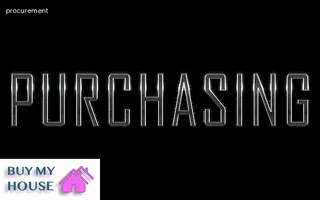
When selling a house with code violations, it is important to understand the severity of the issue. The seriousness of the infraction will affect all aspects of the sale and must be taken into account.
In some cases, minor violations such as outdated fire alarms or heating systems may not have a major impact on the sale process but more serious issues like structural damage or unpermitted construction can be costly to address. It is important to assess each situation independently and determine if the violation is something that can be fixed quickly and cheaply or if it will require more extensive repairs.
A professional inspection by a qualified contractor should provide an accurate evaluation of the problem and allow you to make a more informed decision about how best to proceed with your sale.
When assessing potential liabilities from home code violations, it is important to understand the local regulations and laws. Researching any existing code violations or discrepancies can help you determine the best course of action when selling a house with code violations.
It may also be beneficial to consult with a real estate professional who is knowledgeable about local laws and regulations. They can provide valuable insight into what options are available to you regarding any code violations on the property.
Additionally, if there are any pending legal proceedings related to the house, it is essential that you consult with an attorney before proceeding with the sale. Knowing all of your options in advance can help reduce stress and ensure that you are making informed decisions when selling a house with code violations.
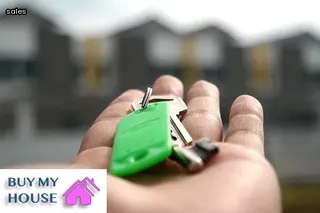
When selling a house with code violations, understanding the legal obligations associated with them is essential. Before beginning the process of selling a house, the seller should first research and understand the local ordinances and laws regarding code violations.
The seller should also be aware of any financial penalties or other liabilities that may result from ignoring or failing to properly address code violations. Additionally, the seller should consider whether they are legally required to disclose any code violation issues to potential buyers.
Depending on the severity of the codes violations, it may be necessary to take certain steps in order to ensure that all legal requirements are met before a sale can take place. Understanding these regulations ahead of time will help make for a smoother sale process.
When selling a house with code violations, there are strategies to mitigate financial loss. Prior to listing the house for sale, it is important to obtain an inspection from a certified professional and make necessary repairs in order to comply with local codes.
In some cases, the seller may be able to negotiate with the local building inspector and agree on a payment plan for immediate repairs. It is also possible to work out an agreement with the buyer who may be willing to accept full responsibility for all code violation issues after closing.
Another option is to reduce the asking price of the house in order to account for any outstanding code violations that may need attention. Ultimately, it is important to take action as soon as possible when selling a house with code violations in order to avoid future fines or legal proceedings by local authorities.

Selling a house with code violations can be a tricky situation. It is important to understand all of your options when it comes to putting your property on the market.
One option is to fix the code violations before listing the home; this will take time and money and can be difficult if you lack the resources or expertise. You could also sell your home as-is, allowing potential buyers to take over responsibility for any necessary repairs and renovations.
Another option is to team up with an investor who has experience in handling code violation issues. Professional real estate agents may also be able to provide assistance in navigating the process of selling a house with code violations.
Regardless of which route you choose, it is essential that you do your research and are aware of local regulations. This will help ensure that all legal requirements are met throughout the selling process and that you get the most from your investment.
When selling a house with code violations, it is important to protect the seller's interests. Before listing the property, it is important to research local laws and regulations regarding code violations and determine if any repairs must be made prior to sale.
If repairs are necessary, sellers should insist that buyers pay for them as part of the purchase agreement. Additionally, sellers should consider establishing an escrow account to ensure that funds for repairs are received prior to closing on the sale.
It is also a good idea for sellers to request that buyers provide proof of financing before agreeing to any sale contracts. Lastly, in order to further protect their interests, sellers should consult with a real estate attorney who can review all pertinent documents and provide advice on avoiding potential legal issues during the sale process.

When selling a house with code violations, it is important to understand how these violations can impact the size of the buyer pool. Home code violations can be off-putting for potential buyers and cause them to look elsewhere for their real estate needs.
Additionally, such violations often reduce the market value of a home, as buyers may be unwilling to pay full price for a property that requires repairs or renovations in order to comply with local codes. Furthermore, certain code violations may even render a property ineligible for certain types of mortgages and financing options, further limiting the number of potential buyers.
As such, sellers must take into account the impact of code violations on the size of their buyer pool prior to putting their property up for sale.
When it comes to selling a home with code violations, it is important for the seller to know when to disclose the violation.
In a real estate transaction, disclosure of any code violations should be done at an early stage before negotiations begin in order to avoid any legal issues or difficulties down the line.
It is important to understand that buyers may be hesitant to purchase a property if they are aware of a code violation due to potential additional costs associated with fixing the issue and the risk of future repercussions.
As such, full disclosure of all known code violations prior to entering into an agreement is essential in order to adequately protect both the buyer and seller and ensure that all parties involved are fully informed before proceeding with a transaction.
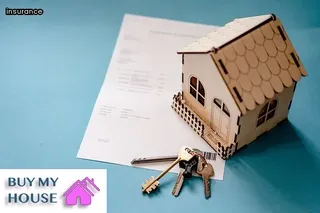
Failing to address home code violations can have serious legal consequences, including possible fines and even jail time. Depending on the severity of the violation and the state or local laws that govern it, a homeowner may be required to pay hefty fines as well as make immediate repairs.
If a homeowner is found in violation of local codes and fails to take corrective action, they could even face criminal charges. It is important for homeowners to take all necessary steps to ensure that their property meets all safety standards and complies with applicable codes.
When selling a house with code violations, it is essential for the seller to understand what their legal responsibilities are and how best to comply with them in order to protect themselves from potential legal repercussions.
Selling a house with code violations can be a difficult process, but resolving these issues before putting the property on the market can be highly beneficial. Doing so allows you to showcase a safe and attractive home, which could increase its value and make it more attractive to potential buyers.
Additionally, taking care of any code violations before listing the property can save time and money during closing as buyers are less likely to encounter delays due to unresolved issues. Furthermore, resolving code violations upfront can reduce the risk of future legal action against the seller if any problems arise after the sale is complete.
With all these advantages in mind, taking steps to address home code violations prior to selling is an excellent idea that could lead to a smoother and more successful transaction.

When selling a house with code violations, it's important to know what type of violations may be present. Common home inspection code violations can be divided into several categories, including health and safety risks, structural issues, energy efficiency concerns and unsanitary conditions.
Health and safety risks include things like exposed wiring or missing handrails on stairs, while structural issues could include anything from foundation damage to inadequate insulation. Energy efficiency concerns may include lack of energy-saving weather stripping around windows and doors.
Unsanitary conditions could range from mold in the walls to overflowing septic tanks. Identifying these types of code violations during a home inspection will help you better understand your options for selling the house as is or making repairs before listing it on the market.
When selling a house with known code violations, you may be faced with the question of whether or not to make repairs prior to listing it on the market. Making the repairs can be costly, but there are certain advantages to doing so.
Depending on the type of violation and its severity, you may be able to raise the asking price as buyers will appreciate that all issues have been taken care of and they won't have to worry about making further investments in renovations. However, if the costs of making the repairs outweighs any potential profit from a higher sale price, then it might not be worth it.
In this case, you could list your home "as-is" and disclose any known violations upfront in order to attract buyers who are looking for a fixer-upper and are willing to accept a lower purchase price. Additionally, some municipalities provide financial assistance or other incentives when owners make necessary repairs in order to bring their homes up to code.
Ultimately, you will need to weigh your options carefully before deciding whether or not you should make repairs before listing your home with code violations.
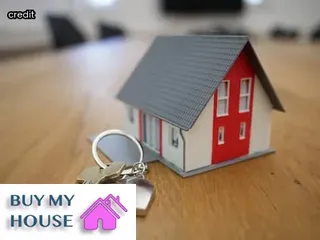
When a home is being sold “as is” and the buyer knows there are code violations, it means the seller will not make any repairs or improvements to the home before selling it. The seller is not obligated to disclose any of the known issues, and they may not even be aware of them.
However, buyers should always conduct a thorough inspection before buying a home in order to identify any potential problems that could become costly later on. It’s important for buyers to know what they’re getting into when purchasing an “as is” property with code violations, as this type of sale can come with certain risks.
If a buyer chooses to purchase this kind of property, they may have to hire professionals and contractors to bring it up to code in order for it to pass inspection by local authorities. This can be an expensive endeavor, so buyers should carefully consider their options before making such a commitment.
When a house has existing code violations, sellers may be tempted to try to hide the issue from potential buyers in an effort to sell the house quickly. However, this carries significant risks and can result in costly legal repercussions.
For example, if a violation is discovered after the sale of the home, buyers may be able to file fraud or misrepresentation lawsuits against the seller. Not only can this result in financial damages, but it can also damage a seller's reputation and credibility with future home buyers.
Furthermore, if a code violation is revealed and not properly addressed prior to sale, it could increase safety concerns for the buyer and their family. It is important for sellers to recognize these risks before making decisions about how to proceed with selling their home when code violations are present.

When selling a home, it is important to understand the potential consequences of ignoring or denying known home inspection issues. A seller who chooses to ignore code violations may face serious legal repercussions from local government, such as fines and the revocation of their real estate license.
Furthermore, a buyer could take legal action against the seller if they are not made aware of any code violations prior to purchase. Potential buyers may also be discouraged from making an offer if these violations are present, resulting in a prolonged period for the house to remain on the market.
Therefore, it is critical for sellers to address any code violations as soon as possible when attempting to sell their house. Taking proactive steps and following all necessary guidelines can help ensure a smooth closing process with minimal repercussions.
Yes, you can sell a house that isn't code compliant. Despite the potential challenges and difficulties associated with selling a house with code violations, it is possible to find buyers who are willing to take on this project.
It's important to understand the legal aspects of selling a house in violation of building codes so you can make an informed decision about your options. One option is to make necessary repairs prior to listing the property.
This may require navigating local ordinances and obtaining permits before making any changes. Another option is to work with an investor or developer who specializes in buying properties with code violations.
The key is to do your research and develop a strategy for how best to proceed. With some careful planning, you can successfully sell a house with code violations and move forward with your real estate goals.
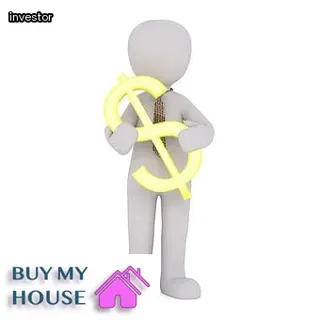
Code rule violations are when a property does not meet local safety, health and zoning regulations. These regulations are often set by municipalities or counties and can vary from place to place.
Common code rule violations include lack of smoke detectors, unsafe electrical wiring, structural issues, failure to obtain proper permits, and failure to meet building codes. Sellers with a home that has code violations should be aware of the potential risks associated with selling a non-compliant property.
Depending upon where you live, there may be serious penalties for buyers who purchase a home in violation of local laws. It is important to understand your legal obligations as a seller in order to protect yourself from liability if any issues arise down the line.
When selling a house, it is important to be aware of any codes or violations that may exist in the property. Codes are rules, regulations, and standards that are established by local governments to ensure public safety and health.
These codes can vary from city to city and include everything from electrical wiring to plumbing, roofing, and general building maintenance. In some cases, these codes must be met before a property can be sold.
It is important to understand what these codes are and how they can affect the sale of your home so that you can make an informed decision about the best way to proceed with the sale. Knowing what code violations may exist on your property will also help you determine if any additional repairs or improvements need to be made prior to putting it on the market.
With this knowledge in hand, you will be able to make the most informed decisions regarding how best to sell your house with code violations.
A: An IBUYER may be more likely to offer a lower price for a house with code violations due to the potential cost of repairs. To offset the risk of purchasing a home with code violations, an IBUYER may ask for higher insurance premiums and/or require that a licensed home inspector inspects the property before purchase.